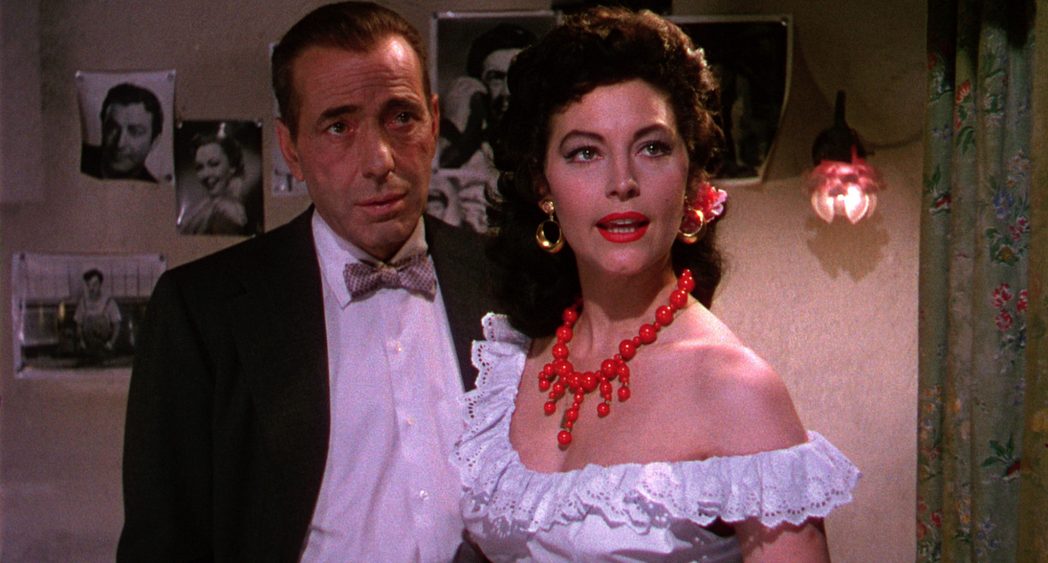
Dir.: Joseph L. Mankiewicz; Cast: Humphrey Bogart, Ava Gardner, Edmund O’Brien, Warren Stevens; Rosanno Brazzi; USA 1954, 128 min.
Joseph L. Mankiewicz, who had won an Oscar for his 1950 Hollywood satire All About Eve (1950), aims for the same with Barefoot Contessa, but this lacks the bitter cynicism of its predecessor, despite Jack Cardiff’s vibrant visual mastery of its Mediterranean setting. Somehow, Eve’s stark monochrome treatment by Milton Krasner are better suited to a critique – colour gives the Hollywood system an excuse to shine and escape nearly unscathed.
Humphrey Bogart plays down-on-his-luck Hollywood director Harry Dawes who is asked by multi-millionaire Kirk Edwards (Stevens), to ”discover” a new star and restart his career with her – whilst also making lots of money for Mr. Edwards. Dawes chooses the Madrid nightclub dancer Maria Vargas (Gardner), a country girl who is rather naïve and trusting. She is no match for Dawes or Edwards, or the rest of Hollywood for that matter, and her – wildly publicised – marriage to the Italian Count Vicenzo Torlatto-Favrini (Brazzi), comes unstuck after it turns out he is impotent.
Starting with Vargas’ funeral – Bogart inconsolable in his dripping trench-coat – the narrative is told in flashbacks, which is, like so often, not the best choice. The – meagre- storyline is somehow held together by Edmund O’Brien’s press agent Oscar Muldoon, who got the best lines, with O’Brien receiving the Oscar for Best Supporting Actor. Bogart is strangely absent: Having just ‘escaped’ from a disaster in Billy Wilder’s Sabrina, where he and Audrey Hepburn lacked any chemistry, Mankiewicz casts Bogart as a marginal figure, a mere chronicler of events. He is a monument to himself, showing his age (54) proudly, whilst putting on a pair of glasses, happy to be ageing (for the era) and detached. Gardner outshines him easily and proves again that Bogart’s identity was (apart from The African Queen) clearly linked to black-and-white features.
The Barefoot Contessa is an entertaining ‘soft’ satire; not much more than a soppy melodrama. It lacks any real bite and relies mostly on great production values. Apart from Jack Cardiff, it’s worth seeing for Mario Nascimbene’s music (his last film score was Matchstick Men in 2002) and Arrigo Equini’s ravishing sets (Furia). AS
OUT ON BLURAY COURTESY OF EUREKA Masters of Cinema | 12 March 2018